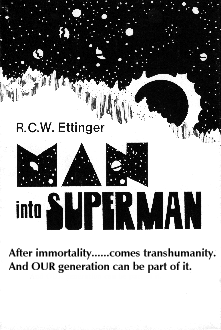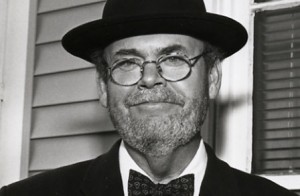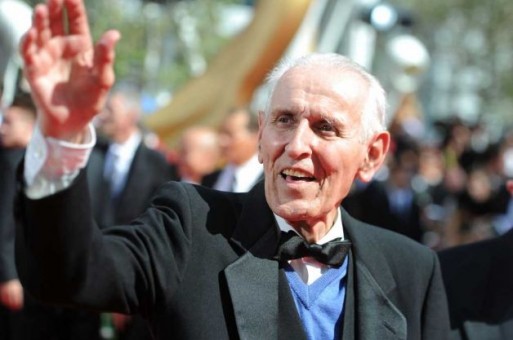The passing of Jack Kevorkian on Friday was particularly profound for me; not only because I hold a special place in my heart for the issue he championed, aid-in-dying — but also because Kevorkian resided in Michigan, near my hometown. Jack Kevorkian was part of what I refer to as the “Detroit triangle of death changes,” a term I dubbed over a decade ago. While many important cultural figures have emerged from various cities neighboring my hometown (Bill Joy, Madonna, and Michael Moore among them), it is the lesser-knowns who have shaped death culture that most fascinate me.
 First there was Robert Ettinger, the so-called Father of Cryonics (the low-temperature preservation of humans for future resuscitation). Ettinger was a scientist who founded the Cryonics Institute in the Detroit area, now located in Clinton Township, Michigan. In the 1960’s and 70’s there was so much local news coverage of cryonics, I was under the impression that being frozen at death and later returning “to taste the wine of centuries unborn” was already an everyday occurrence. Though cryonics are not yet a pedestrian end-of-life option, they are the future.
First there was Robert Ettinger, the so-called Father of Cryonics (the low-temperature preservation of humans for future resuscitation). Ettinger was a scientist who founded the Cryonics Institute in the Detroit area, now located in Clinton Township, Michigan. In the 1960’s and 70’s there was so much local news coverage of cryonics, I was under the impression that being frozen at death and later returning “to taste the wine of centuries unborn” was already an everyday occurrence. Though cryonics are not yet a pedestrian end-of-life option, they are the future.
Then in late 1980’s, the physician Jack Kevorkian advertised “death consulting” in Detroit newspapers. This marked the beginning of Kevorkian’s trials and tribulations, a decade of narrowly escaping conviction for no more than simply ending the suffering of the terminally ill. Kevorkian had a hand in over 130 compassionate physician-assisted suicides of terminal patients before he was finally convicted of second degree-murder in 1999, serving his time in Coldwater, Michigan. His passion and bold advocacy laid the groundwork for today: four states now have legalized forms of aid-in-dying — and that’s just the beginning.

At the end of the 1990’s, Thomas Lynch, a funeral director and gifted writer in Milford, Michigan, penned one of the most eloquent books ever written on the state of his profession, entitled The Undertaking: Life Studies from the Dismal Trade. A chapter-by-chapter poetic delight, The Undertaking offers a full panorama of the funeral trade and its psychology. Thomas Lynch, who grew up in the industry, gives us clear insight as to why the funeral trade has had such difficulties addressing our growing need to plan personalized, healthy deaths and end-of-life rituals. Lynch’s book is an invaluable documentation of how death has been observed in the past. Now it’s time we move forward.
The three tips of the “Detroit triangle of death changes” point to the past, present, and future of the state of death and dying. We witness the past through Thomas Lynch’s eyes in The Undertaking, the present with jack Kevorkian’s footprint on the current success (and forward path) of aid-in-dying legalization efforts, and the future when nanotechnology is able to realize Robert Ettinger’s vision of cryonics.
And on this note, I want to express my deep gratitude to Jack Kevorkian for literally sacrificing part of his life to spare the ill suffering at life’s end. I will close with these words…
“Dare we be different? Dare we not?”
Read an interview about Robert Ettinger here.
Read an interview with Thomas Lynch here.
Watch an interview with jack Kevorkian here.

 The Detroit Triangle of Death Changes
The Detroit Triangle of Death Changes



 “Making Mobiles” by Karolina Merska
“Making Mobiles” by Karolina Merska
 “Hands Up to the Sky” by Michael Franti & Spearhead
“Hands Up to the Sky” by Michael Franti & Spearhead
 Coping With Election Grief
Coping With Election Grief














